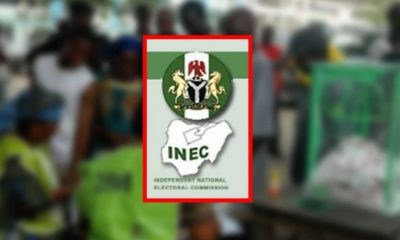Why we spent heavily on 2019 elections – INEC
The Independent National Electoral Commission (INEC) says it incurred huge cost during the 2019 elections.
Adedeji Soyebi, INEC national commissioner in charge of south-west, made the disclosure at a post election retreat in Lagos.
He said about two million tonnes of paper were used to conduct the election and that the number of woods cut to produce the paper, perfecting security features to currency standard, logistics and other processes cost a lot of money.
“For the first time, we used close to two million tonnes of paper for the conduct of elections, that is paper that will fill about 60 and 70 aircraft,” he said.
Soyebi said that elections in the country had been too expensive due to mistrust among stakeholders.
“We must look for a way to perfect the system. The buildup to the election was very rancorous,’’ he said.
“Most of the things we do here are due to lack of trust. When we print out ballot paper, we print it up to currency quality with a lot of security features. We transport them as if we are transporting money with fully armed security apparatus, keep in central bank as if they are currency; all these are prices of mistrust among ourselves.
“This mistrust is costing the country very hugely. All these we must address as a nation, we cannot continue this wasteful expenses because we don’t trust ourselves.
”It is just appropriate for us to take stock after a major exercise like this. In the history of elections in Nigeria, this is the first time we will be confronted with huge logistics problems.”
Soyebi, who also frowned at huge number of petitions and litigation arising from party primaries and general election, said the country had a long way to go.
He said the full electronic voting would tackle most of Nigeria’s electoral challenges.
“Time waits for nobody, we need a dynamic electoral system. The dynamics of politics and elections keep changing in Nigeria every time,” he said.
“We have been clamouring for what is called full electronic voting. By now, our register is electronic; accreditation by the smart card readers is electronic. Honestly, in my opinion, if we can have electronic balloting, it will help the system, it will rest a lot of things.”
Soyebo said in 2015, the total number of registered voters was about 70 million, and in 2019, about 84 million.
“If we project into 2023, we should expect about 100 million registered voters,” he said. (NAN)


